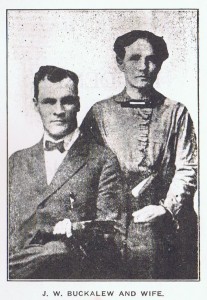There seems to be 2 dominant camps among young leaders:
1) The know-it-alls
2) The presently silent
Obviously that’s painted with a pretty broad brush, but as a young leader I am always trying to find my place between these 2 groups. I don’t want to open my mouth every time the floor is open for discussion because there are those in the room who can pull from greater experience to speak to the issues.
I also don’t want to waste my voice by never weighing in. After all, it’s not by accident that God has given young leaders a “seat at the table”.
In the book of Job we are privy to a conversation between friends that carries on for several chapters. After each has spoken several times we are introduced to a new, younger character.
4 Elihu had waited with Job while they spoke because they were all older than he.
5 But when he saw that the three other men had exhausted their arguments, he exploded with pent-up anger.
6 This is what Elihu, son of Barakel the Buzite, said:
“I’m a young man, and you are all old and experienced.
That’s why I kept quiet and held back from joining the discussion.7 I kept thinking, ‘Experience will tell.
The longer you live, the wiser you become.’8 But I see I was wrong—it’s God’s Spirit in a person,
the breath of the Almighty One, that makes wise human insight possible.9 The experts have no corner on wisdom;
getting old doesn’t guarantee good sense.10 So I’ve decided to speak up. Listen well!
I’m going to tell you exactly what I think.Job 32:4-10 (MSG)
Elihu is not mentioned in the introduction of Job’s friends in chapter 2, nor does he receive rebuke from God in chapter 42, so we aren’t really sure who he is. Some scholars think he may be a servant of one of Job’s friends or one of Job’s messengers of bad news, though this is vague. No matter his identity, his rant reveals much to us about acceptable protocol for young leaders.
1) Know your place. In verse 6 Elihu says that he waited because he was younger and they were older and wiser. It is important to understand your role in a conversation. This is not about timidity or weakness, it’s about self-awareness.
2) There is a time when you should speak up. That time is probably not first, but it’s not always last either. On the Spiritual side, listen for the voice of God. Elihu said that he remained silent, but now the voice of God burned within him. On the practical side, listen to the other comments and ideas. Speak when your thoughts add the most value to the conversation, either in support previous thoughts or as a means of introducing a new thought. Don’t just talk to hear your voice, speak to contribute.
3) Be confident in who you are, and Who got you here. Elihu tells us in verse 8 that God, not old age, is responsible for wisdom. Be confident that the God who delivered you to this moment will see you through. It’s that same confidence that David exhibits when standing before Goliath. He understood that a giant’s sword was no match for the God who’d used him to kill lions and tigers and bears (oh my!).
Young leaders are leaders…it’s right there in the name. How they handle the being young part usually determines if they’re still a leader when being young no longer applies.



Comments